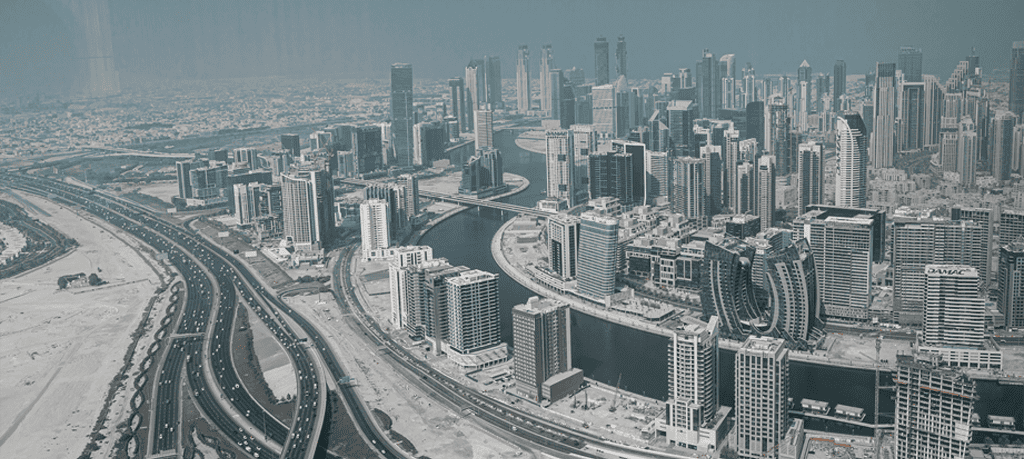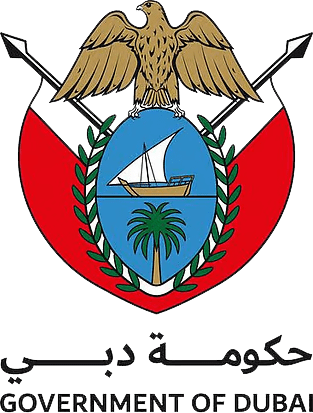Operational Review
Macro‑economic context
Dubai’s economy continues to demonstrate resilience and growth, with a 3.1% year‑on‑year real GDP increase during the first nine months of 2024, reaching AED 339.4 billion. The transportation and storage sector grew significantly, growing by 5.3% during the same period and contributing 12.4% to the economy. Dubai welcomed 18.7 million international visitors in 2024, a 9% year‑on‑year increase on2023, with Dubai International Airport handling 92.3 million passengers. High‑profile events and greenfield investments reaffirm its status as a global MICE hub. Additionally, the RTA’s Strategic Plan 2024‑2030, featuring goals like the ‘20‑minute city’ concept, underpins Dubai’s future‑ready transport strategy.
Operational results of 2024
Salik demonstrated strong operational performance in 2024, driven by consistent growth across key metrics. Revenue for the period reached AED 2.292 billion, a 8.7% year‑on‑year increase, enabled by a 8.0% rise in revenue‑generating trips, which totalled 498.1 million. This growth reflects the resilient demand for tolling services amid Dubai’s economic expansion and strategic urban mobility initiatives. Salik’s ability to maintain stable tariffs, combined with its asset‑light business model, further supported this revenue momentum.
EBITDA for 2024 rose to AED 1.579 billion, reflecting a high EBITDA margin of 68.9%, compared to a margin of 65.9% in 2023. Net profit after tax also showed impressive growth, reaching AED 1.165 billion, up 6.1% year‑on‑year despite the introduction of 9% corporate tax in the UAE. This level of profitability was due to revenue growth, cost optimisations, and a reduction in concession fees from 25.0% to 22.5% as of April 2024. These results reflect Salik’s robust governance framework, a valuable concession agreement and operational efficiency, amidst evolving market conditions.
Core tolling business
In 2024, Salik saw significant growth across its toll network usage, with total trips increasing by 7.6% to 638.2 million, up from 593.1 million in 2023. This growth reflects the rising demand for efficient mobility solutions in Dubai’s expanding urban landscape.
A key milestone was the introduction of nearly 90% solar‑powered toll gates at Business Bay Crossing and Al Safa South, following the successful solar implementation at Jebel Ali in 2023. These efforts align with Dubai’s net‑zero emissions goals for 2050, showcasing Salik’s commitment to integrating renewable energy into its operations and solidifying its position as a leader in sustainable and innovative mobility services.

Two new gates
On 24 November 2024, Salik launched two new gates, increasing the total to ten locations. Located at Business Bay Crossing on Al Khail Road and Al Safa South on Sheikh Zayed Road, these gates aim to ease congestion and improve traffic flow. The Business Bay Crossing gate is expected to reduce traffic on Al Khail Road and Al Rebat Street by up to 16%, potentially saving 20,000 daily travel hours. The Al Safa South gate is designed to decrease right‑turn traffic by 15% and reduce congestion on Al Meydan and Al Safa Streets by 42%.
Each toll passage costs AED 4, with a single charge for every vehicle passing across both Al Safa North and South Gates in the same direction within one hour. These gates complement the Al Khail Road Development Project, which added bridges and expanded lanes to increase capacity. Aligned with Dubai Urban Plan 2040, this initiative aims to enhance infrastructure, reduce congestion, and encourage public transport, supporting sustainable urban development and balanced traffic distribution.
Concession agreement
Salik’s 49‑year Concession Agreement with Dubai’s Roads and Transport Authority (RTA), extending until 30 June 2071, provides a clear, shareholder‑friendly framework that enables both parties to deliver a world‑class, barrier‑free toll network suited to Dubai’s growing economy.
The Agreement structures Salik’s business model, with RTA serving as the regulator and the Dubai Executive Council as the final authority on tariffs and major strategic decisions. Covering essential terms—including tariff setting, concession fees, and procedures for new gate additions—the Concession Agreement establishes a stable foundation for Salik’s longterm growth and contribution to Dubai’s infrastructure needs.
Concession agreement overview
Relevant Authorities and Relationship with Salik

The Executive Council (TEC)
Ultimate decision-maker around changes in tariffs and new gates
The TEC takes into consideration the review and recommendations of the RTA but independently makes a decision
RTA’s recommendations are subject to final TEC approval

Roads & Transport Authority (RTA)
RTA is 100% owned by Government of Dubai
RTA provides exclusive grant of Concession rights
Operator (Listed Entity)
Operator of toll road system, charging motorists with pre-determined tariffs
Responsible for toll gate maintenance
Salik can submit a proposal of tariff increases annually in line with changes in inflation
Key Concession Agreement Terms
Term of the Concession
- Concession term of 49 years
- Starting date: 1 July 2022
- Ending date: 30 June 2071
Tariff
- Pre-determined increase mechanism, to be submitted to TEC on a yearly basis
- Compensation mechanisms providing significant downside protection versus Inflation, amongst other things
Concession Fee
- AED 4bn upfront fee at start of concession
- 22.5% of Annual Toll Revenue as of April 2024
- Adjustment mechanism to compensate for lack of tariff increase (minimum concession fee floor of 15%)
New Gates Mechanism
- New toll gates to be added at the joint proposal of RTA and Salik if approved by TEC
- Pre-agreed valuation mechanism
- Salik will be the exclusive operator of new gates

In November 2024, Salik announced the implementation of variable toll pricing on RTA’s instruction, effective from January 2025, to optimise traffic flow and improve transportation efficiency. The new pricing structure is projected to generate an additional annual revenue of AED 60 million to AED 110 million.
Rights and obligations
The Concession Agreement outlines the roles and responsibilities of both Salik and the RTA, establishing operational and financial standards to support effective toll management. To ensure accountability, it specifies key performance indicators (KPIs) for each party: Salik must maintain a 99% equipment availability ratio and submit quarterly compliance reports, while the RTA is responsible for infrastructure availability, a pavement condition index, timely emergency call responses, and HSE incident management, as well as fine and penalty collection.
The Agreement’s structure reinforces Salik’s asset‑light model by placing full financial responsibility for road network maintenance and expansion on the RTA. Additionally, it provides Salik with defined compensation mechanisms, offering protection against inflation and unexpected costs.
Tariffs
The Concession Agreement grants Salik the right to recommend annual toll tariff adjustments based on a formula linked to inflation. Salik submits these recommendations to the RTA, which then reviews them and consults the TEC for a final decision. If TEC rejects Salik’s proposed increase, the RTA compensates Salik by adjusting its annual concession payment to account for inflation. Conversely, if a higher‑than‑standard increase is approved, Salik’s concession fee is adjusted accordingly, with limits ensuring that any fee adjustment does not exceed 25% or fall below 15% of toll revenue. The concession fee was adjusted from 25% to 22.5% as of April 2024.
The Agreement also includes guidelines for network expansion. Upon TEC approval, Salik can acquire new tolling rights through an upfront payment plus an ongoing concession fee. Detailed mechanisms are outlined to determine the upfront payment and to address any potential disputes between Salik and the RTA.
Independent oversight
The valuation of new toll gates, which informs Salik’s upfront payments, is typically performed collaboratively by financial and commercial advisors appointed by RTA, Salik, and an independent expert. If a discrepancy greater than 5% arises between Salik’s and RTA’s valuations, Salik’s payment will be based on the lowest net present value (NPV) plus a potential earn‑out, alongside any additional payments as per the agreed mechanism.
To address potential EBITDA shortfalls during a “ramp‑up period,” Salik may pay earn‑out obligations, which are calculated based on annual cash flow differences between projected and actual traffic volumes, with adjustments for the time value of money. Payment requirements are determined over two intervals:
- First interval (years one to three): if traffic aligns with or is below the lowest NPV projection, no extra payment is required. However, if traffic exceeds this projection, Salik will make earn‑out payments proportionate to the increase.
- Second interval (years four and five): the same terms apply.
After the five‑year mark, no further earn‑out obligations are owed, regardless of actual traffic levels.
Ancillary revenues
Parking
Starting July 1, 2024, Salik’s advanced technology has provided seamless, barrier‑free parking for Dubai Mall visitors. The system offers automatic, ticketless fee collection by recognising vehicle plates and deducting applicable charges directly from Salik user accounts across the Fashion, Grand, and Cinema parking zones.
In a strategic partnership with Parkonic, Salik has further extended its reach by integrating its eWallet system across 107 locations in the UAE, with plans to expand to approximately 135,000 parking spaces by Q2 2025. This collaboration marks Salik’s first venture outside the Emirate of Dubai and underlines its commitment to enhancing smart city infrastructure. The five‑year agreement will see Salik receiving a share of parking revenues generated through its eWallet, bolstering ancillary income streams and reinforcing its position as a leader in mobility solutions.
Insurance
Building on its ancillary revenue strategy, Salik has also partnered with Liva, a leading multi‑line insurer in the GCC, to offer bespoke motor insurance solutions. This collaboration provides Salik customers with tailored insurance options, streamlined through a digital portal managed by Liva. Drivers will receive timely reminders to renew their policies, ensuring uninterrupted coverage and compliance with vehicle registration requirements. This initiative exemplifies Salik’s innovative use of its extensive database and technology to enhance customer convenience while further diversifying its service offerings.
Personalised, branded tags
Salik introduced a new service, offers the option to design customized tags.
Customer service awards
In recognition of outstanding customer service, Salik won bronze award for ‘Best Contact Centre’ at the Global Customer Experience Awards (GCXA) and won ‘Outsourced Helpdesk of the Year’ as well as ‘Best Medium Outsourced Call Centre.’
Outlook
To sustain its growth trajectory, Salik is building on its reputation for innovation and operational excellence. Growth is very likely to come from more traffic through existing gates, opening more gates, and through the provision of ancillary services for drivers: notably, seamless parking and insurance services.
